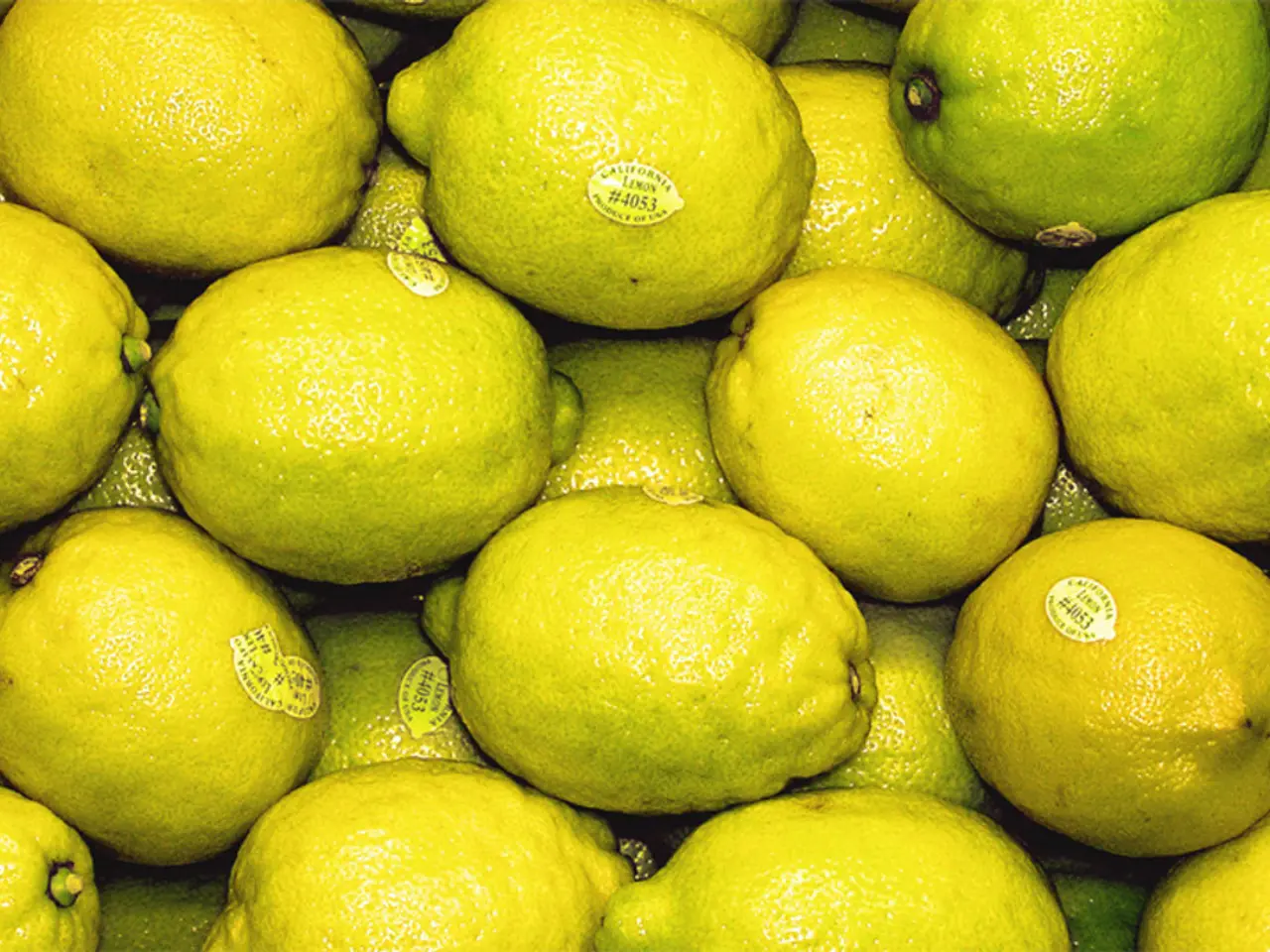Vibrant Lemon Trees' Allure: A invigorating boost for your backyard garden
In the quest to cultivate a thriving lemon tree on your garden or balcony, following these expert guidelines will ensure a healthy plant that offers fresh lemons for a variety of healthful uses.
### Choosing the Right Lemon Tree
Selecting an appropriate lemon variety suited to your climate and space is essential. Popular types like 'Eureka' thrive in Mediterranean climates but are sensitive to frost, making containers ideal for colder areas where the tree can be moved indoors in winter. For balconies or small spaces, dwarf or container-friendly lemon trees are suitable.
### Planting Your Lemon Tree
Spring is the ideal time to plant your lemon tree after the frost danger has passed, ensuring young trees establish well. A spot with full sun, receiving at least 6-8 hours of direct sunlight daily, is vital for flowering and fruiting. The spot should also have well-drained soil, as lemon trees dislike standing water and root rot. Prefer loamy or sandy, slightly acidic soil conditions for optimal growth. When planting in the garden, dig a hole twice the size of the root ball and space trees considering they can grow 10-20 feet tall and wide.
### Caring for Your Lemon Tree
Watering is crucial. Newly planted trees need deep watering every other day initially, ensuring the root ball is fully hydrated but never waterlogged. Established trees require consistent moisture, often daily watering in summer, but avoid saturation. Lemon trees are frost-sensitive and dislike harsh winds, so provide shelter or bring container plants indoors if temperatures approach 20°F (-6°C). Fertilizing with a citrus-specific fertilizer bi-annually or as recommended, especially for fruiting trees that consume a lot of nutrients, is essential. Regularly check for pests and prune as necessary to maintain plant health and vigor. If grown indoors or in dry climates, use a humidifier or mist plants to prevent dry air stress.
### Harvesting and Health Benefits
Pick lemons when fully yellow and slightly soft. Harvest by cutting the fruit from the stem rather than pulling to avoid damage. Freshly picked lemons provide vitamin C, antioxidants, and support digestion and immune health when used in cooking, drinks, or as natural remedies. Lemon trees are self-pollinating, but hand pollination by rubbing pollen between blossoms can enhance fruit yield.
Following these practices ensures a healthy lemon tree that thrives and provides fresh lemons for a variety of healthful uses in your garden or balcony. With proper care, a lemon tree can be a productive and rewarding addition to your garden for years to come. The culinary possibilities with lemons are endless, from refreshing lemonade to tangy marinades, and the zest and juice add a perfect burst of flavor to any dish.
- For a thriving lemon tree on your garden or balcony, choose a lemon variety that suits your climate and space, such as 'Eureka' which is ideal for smaller spaces or containers.
- Plant your lemon tree in the spring, after the frost danger has passed, in a spot with full sun and well-drained soil for optimal growth.
- Proper care includes watering deeply and consistently, avoiding frost, harsh winds, and root rot, fertilizing with citrus-specific fertilizer, and regular checking for pests.
- When growing indoors or in dry climates, use a humidifier or mist plants to prevent dry air stress.
- Harvest lemons when fully yellow and slightly soft by cutting them from the stem, not pulling, for the best health benefits and flavor.
- Fresh lemons offer vitamin C, antioxidants, and support digestion and immune health when used in cooking, drinks, or as natural remedies.
- With the right care and attention, a lemon tree can be a long-term addition to your home-and-garden lifestyle, providing delicious fruits for a variety of uses in your kitchen and beyond.




